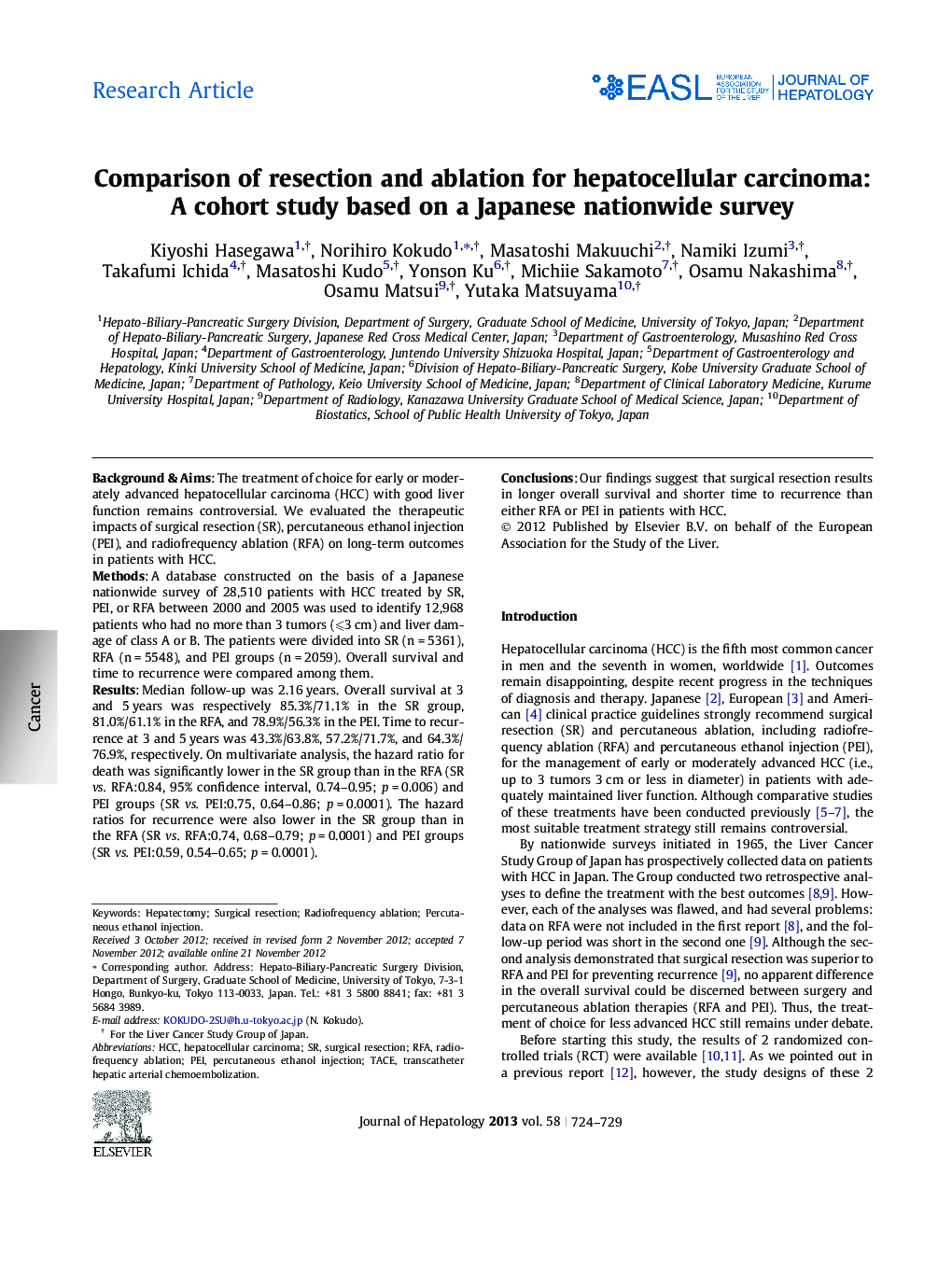| Article ID | Journal | Published Year | Pages | File Type |
|---|---|---|---|---|
| 6105508 | Journal of Hepatology | 2013 | 6 Pages |
Background & AimsThe treatment of choice for early or moderately advanced hepatocellular carcinoma (HCC) with good liver function remains controversial. We evaluated the therapeutic impacts of surgical resection (SR), percutaneous ethanol injection (PEI), and radiofrequency ablation (RFA) on long-term outcomes in patients with HCC.MethodsA database constructed on the basis of a Japanese nationwide survey of 28,510 patients with HCC treated by SR, PEI, or RFA between 2000 and 2005 was used to identify 12,968 patients who had no more than 3 tumors (⩽3 cm) and liver damage of class A or B. The patients were divided into SR (n = 5361), RFA (n = 5548), and PEI groups (n = 2059). Overall survival and time to recurrence were compared among them.ResultsMedian follow-up was 2.16 years. Overall survival at 3 and 5 years was respectively 85.3%/71.1% in the SR group, 81.0%/61.1% in the RFA, and 78.9%/56.3% in the PEI. Time to recurrence at 3 and 5 years was 43.3%/63.8%, 57.2%/71.7%, and 64.3%/76.9%, respectively. On multivariate analysis, the hazard ratio for death was significantly lower in the SR group than in the RFA (SR vs. RFA:0.84, 95% confidence interval, 0.74-0.95; p = 0.006) and PEI groups (SR vs. PEI:0.75, 0.64-0.86; p = 0.0001). The hazard ratios for recurrence were also lower in the SR group than in the RFA (SR vs. RFA:0.74, 0.68-0.79; p = 0.0001) and PEI groups (SR vs. PEI:0.59, 0.54-0.65; p = 0.0001).ConclusionsOur findings suggest that surgical resection results in longer overall survival and shorter time to recurrence than either RFA or PEI in patients with HCC.
